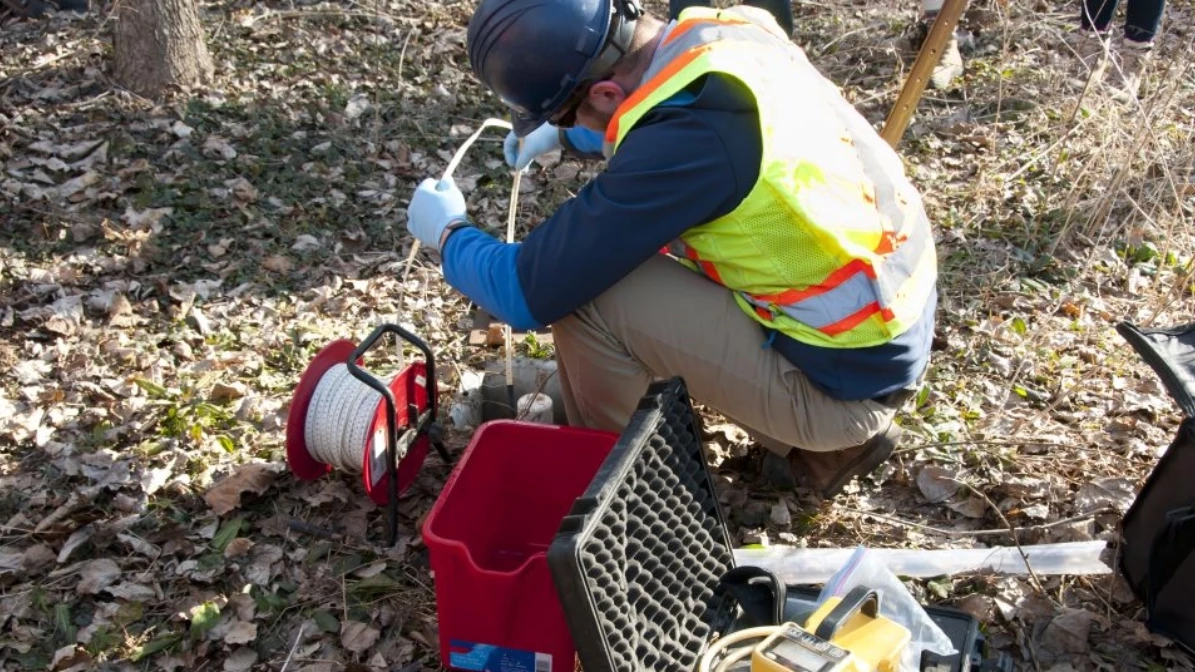Maintaining clean well water year-round is essential for ensuring the safety and quality of your drinking water. One key practice in achieving this is well chlorination. This process helps eliminate bacteria, viruses, and other harmful microorganisms that can contaminate your water supply.
Establishing a well chlorination schedule is a proactive step in safeguarding your water quality. Here’s a detailed look into the factors influencing well chlorination, how often it should be done, and alternatives to chlorine for maintaining well water quality.
How Often Should I Shock Chlorinate My Well To Ensure Water Safety?
Shock chlorination is an effective method to disinfect your well and eliminate contaminants. The frequency of shock chlorination depends on several factors, including the type of well, water usage, and local environmental conditions.
Generally, it is recommended to chlorinate your well at least once a year. However, certain situations may require more frequent chlorination. If you notice a sudden change in your water’s taste, odor, or color, it might be time to shock and chlorinate your well.
After any maintenance or repair work on your well, it’s crucial to chlorinate it to ensure no contaminants have entered during the process. Regular shock chlorination helps maintain water safety and prevents the buildup of harmful microorganisms.
What Factors Influence The Frequency Of Well Chlorination?
Several factors influence how often you should chlorinate your well, and understanding these can help you maintain optimal water quality. Here are the key considerations:
Location of Your Well
- Proximity to Agricultural Fields: Wells near agricultural areas are more likely to be contaminated by runoff containing fertilizers, pesticides, and other chemicals. Frequent chlorination is necessary to keep the water safe.
- High Water Table Areas: In regions with a high water table, surface water can easily seep into the well, carrying contaminants. This necessitates more frequent chlorination to ensure water purity.
Condition and Age of Your Well
- Older Wells: Over time, wells can develop cracks or other structural issues, increasing the risk of contamination. Older wells often require more frequent chlorination to maintain water quality.
- Damaged Casings: If your well casing is compromised, contaminants can enter more easily. Regular inspections and chlorination are essential to prevent water quality deterioration.
Water Usage
- High Water Usage: When a well is used frequently, there is a greater chance of contamination due to the constant movement of water. Homes with high water consumption may need to chlorinate their wells more often to ensure the water remains safe.
- Seasonal Changes: Environmental factors like heavy rains or floods can contaminate your well. During such periods, it may be necessary to chlorinate your well more frequently to prevent waterborne illnesses.
Seasonal Changes
- Heavy Rains and Floods: These weather events can wash contaminants into your well, increasing the risk of contamination. During such times, more frequent chlorination is advised to maintain water safety.
By considering these factors and adjusting your chlorination schedule accordingly, you can effectively safeguard your well water against contamination, ensuring it remains clean and safe for consumption year-round.
Can I Establish A Well Chlorination Schedule Based On Water Testing Results?
Establishing a well chlorination schedule based on water testing results is a proactive and effective approach to maintaining water quality. Regular water testing allows you to monitor the levels of bacteria, nitrates, and other contaminants in your water supply. If testing indicates the presence of harmful microorganisms, immediate shock chlorination is recommended. Water testing should be conducted at least once a year. Still, more frequent testing is advisable if you notice any changes in your water’s characteristics or if your well is in an area prone to contamination.
By analyzing the results of water tests over time, you can identify patterns and trends in contamination levels. This information helps you determine the optimal frequency for shock chlorination.
For example, if testing reveals a gradual increase in bacterial levels during certain months, you can schedule chlorination just before this period to prevent contamination from reaching unsafe levels. Regular water testing and a well-planned chlorination schedule ensure your water remains safe and clean year-round.
Are There Any Alternatives To Chlorine For Maintaining Well Water Quality?
While chlorine is a widely used and effective method for well water disinfection, some may seek alternatives due to concerns about its potential health effects or the taste and odor it imparts to water.
One alternative is the use of ultraviolet (UV) light systems. UV disinfection works by exposing water to UV rays, which kill bacteria, viruses, and other microorganisms without adding chemicals. This method is effective and does not alter the taste or odor of the water. However, it requires a reliable power source and regular maintenance to ensure optimal performance.
Another alternative is the use of ozone treatment. Ozone is a powerful oxidant that can disinfect water by destroying bacteria and other contaminants. Ozone treatment systems generate ozone on-site and inject it into the water, providing a chemical-free disinfection method. This method is effective but more expensive and complex to install and maintain than chlorination.
Hydrogen peroxide is also used as an alternative disinfectant. It effectively kills bacteria and neutralizes contaminants without leaving any chemical residue. Hydrogen peroxide systems are relatively easy to install and maintain, making them a viable option for those looking for a chlorine-free solution.
Finally, installing a whole-house water filtration system can help maintain water quality by removing contaminants before they reach your taps. These systems often use a combination of filters, such as activated carbon and sediment filters, to remove impurities and improve water quality.
While filtration systems do not disinfect water in the same way as chlorination, they are effective in reducing the presence of many common contaminants.
Maintaining clean well water year-round is essential for the health and safety of your household. By understanding the factors influencing well chlorination frequency and considering alternatives to chlorine, you can develop a comprehensive plan to ensure your water remains safe and high-quality. Regular water testing and a proactive approach to well maintenance are key components of an effective well chlorination schedule.
Why Well Doctor LLC Is Your Best Choice
At Well Doctor LLC, we prioritize maintaining clean and safe well water for your home. With extensive experience and a team of certified professionals, we offer superior, well-chlorination services tailored to your needs.
Our expertise ensures thorough disinfection and quick resolution of potential issues, keeping your water safe year-round. We provide customized solutions for various well types, ensuring precise care for optimal water quality.
Beyond chlorination, we offer comprehensive services, including water testing, inspections, and repairs, making us your one-stop, well-maintenance solution. We pride ourselves on quality, reliability, and competitive pricing, with services ranging from $100 to $300, ensuring top-quality maintenance at affordable rates.
FAQs About Well Chlorination
Q: How often should I chlorinate my well?
A: We recommend shock chlorinating your well at least once a year. However, the frequency may vary based on factors such as well location, water usage, and local environmental conditions.
Q: What are the signs that my well needs to be chlorinated?
A: Changes in water taste, odor, or color, as well as a positive test for bacteria or other contaminants, are clear signs that your well needs to be chlorinated.
Q: Can I chlorinate my well myself, or should I hire a professional?
A: While it is possible to chlorinate your well yourself, hiring a professional ensures the process is done correctly and safely. Our team at Well Doctor LLC has the expertise and equipment to perform thorough and effective chlorination.
Q: How much does well chlorination cost?
A: Well Doctor LLC’s well chlorination services cost ranges from $100 to $300, depending on the specific needs of your well.
Q: Are there alternatives to chlorine for disinfecting my well?
A: Yes, alternatives such as UV light systems, ozone treatment, and hydrogen peroxide are available. Our experts can help you determine the best method for your well.
Contact Well Doctor LLC Today!
Schedule Your Well Maintenance With Us
Don’t wait until water quality issues arise. Ensure the safety and cleanliness of your well water by scheduling regular maintenance with Well Doctor LLC. Our team of professionals is ready to provide you with top-notch well chlorination and comprehensive well services. Contact us today to learn more about our services and to schedule an appointment. With Well Doctor LLC, you can rest assured that your well is in the best hands.
Call us at (704) 909-9258 to book your good maintenance service today!

